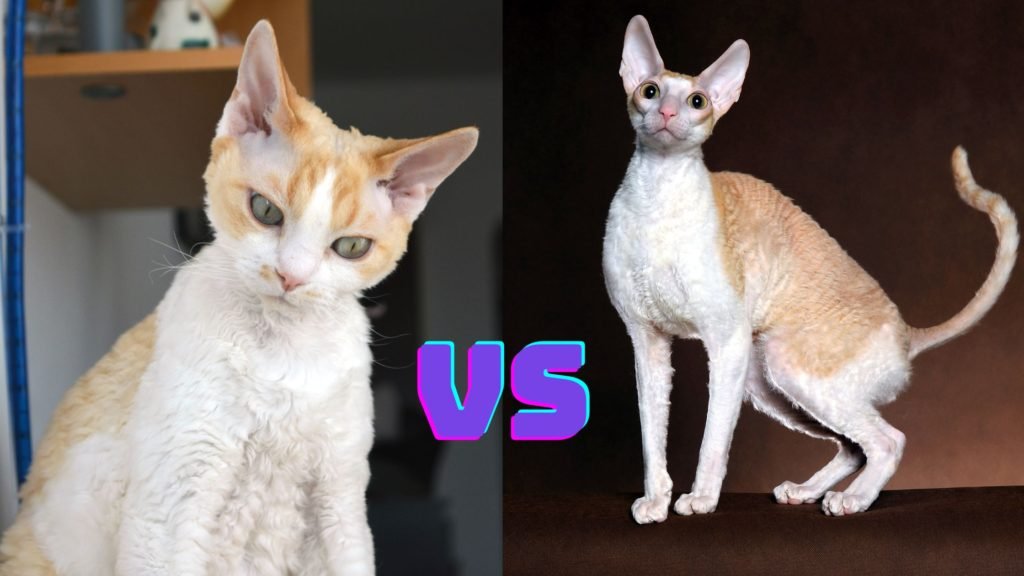Devon Rex vs Cornish Rex: Learn their distinct features, personalities, and care requirements to find your ideal cat companion.
Regarding cat breeds that leave a lasting impression, the Devon Rex and Cornish Rex undoubtedly come to mind. These two captivating feline friends share a unique trait: their beautiful curly coats. In this article, we’ll dive deeper into the fascinating world of these two breeds, comparing their origins, physical attributes, and temperaments. We want to explain their differences and similarities to anyone contemplating acquiring one of these adorable dogs.
Devon Rex: Unique Feline
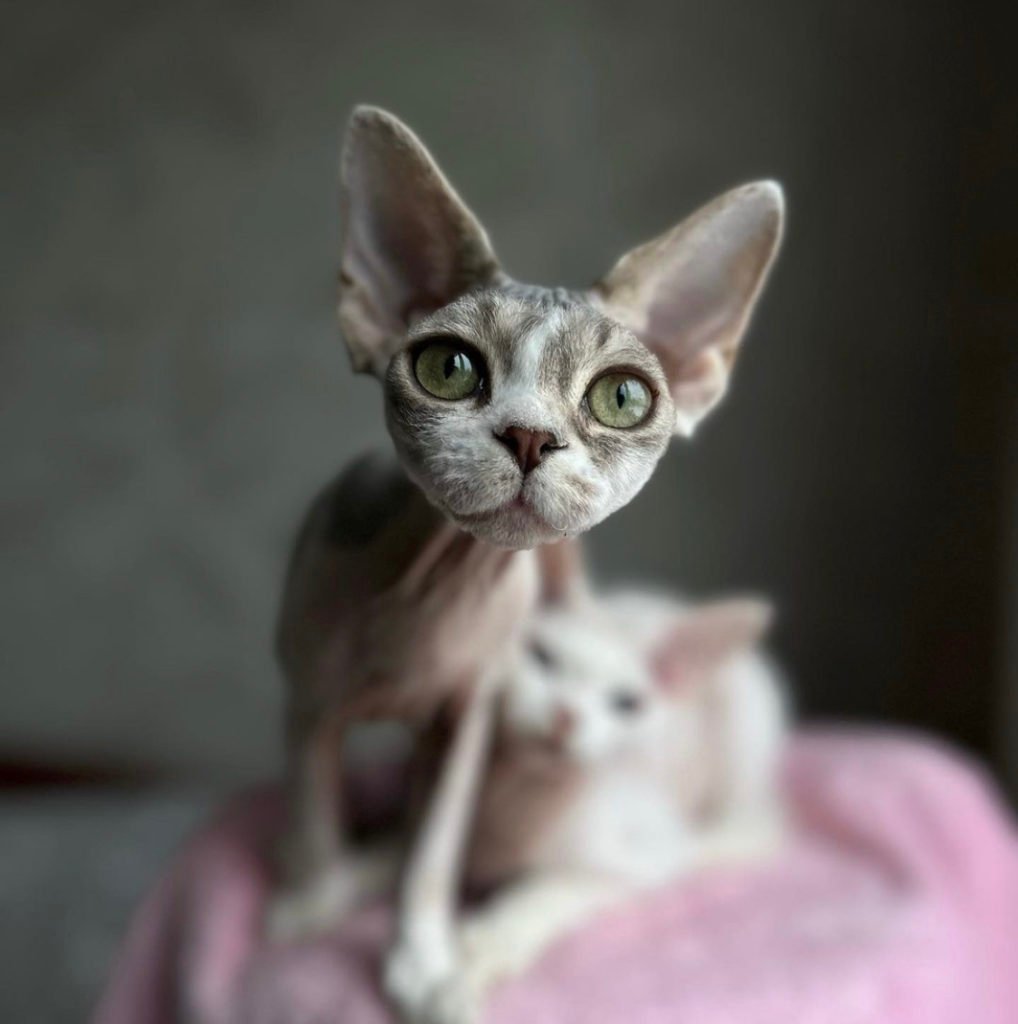
Birth of a Breed: The Devon Rex’s origin can be traced back to Devon, England, in the 1960s. It emerged from a spontaneous genetic mutation propagated through selective breeding to develop the breed we know today.
Physique Uncovered:
- Wavy Coat: The breed’s standout feature is its short, curly coat that feels soft. The tight curls give the Devon Rex a unique and visually stunning appearance.
- Svelte Frame: Devon Rex cats are slim, agile, and muscular, with males typically weighing between 8 and 10 pounds and females between 5 and 8 pounds.
- Distinctive Face: The Devon Rex is known for its large, expressive eyes, high cheekbones, and prominent ears that give it an endearing, elfin appearance.
Personality Traits: These cats are known for their playful, affectionate nature, making them excellent companions. They’re obedient, trainable, and enthusiastic about joining in on whatever their owners are doing.
Health and Longevity: Devon Rex cats are generally healthy, with a life expectancy of 12 to 15 years. However, they may be prone to certain genetic conditions.
Cornish Rex: The Elegant Curly Cat
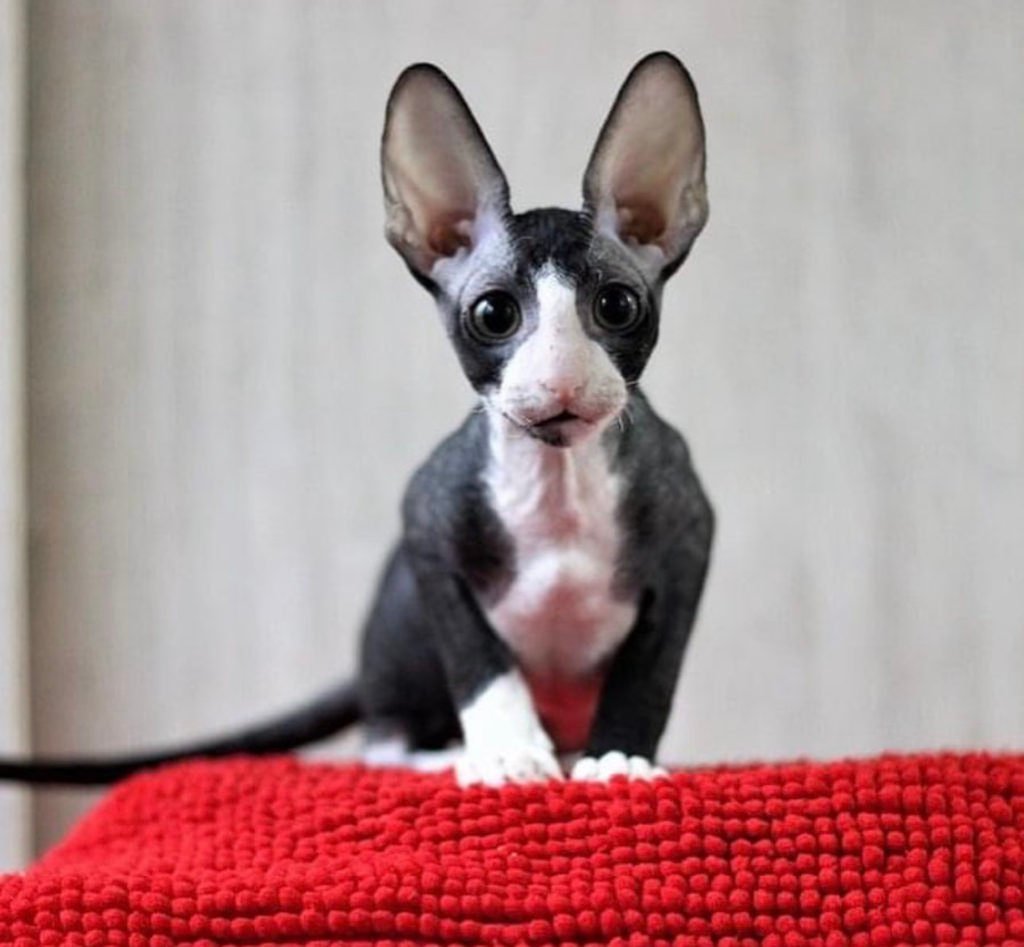
Tracing its Roots: The Cornish Rex originates in Cornwall, England, where it first appeared in the 1950s. Like the Devon Rex’s, this breed’s curly coat is hereditary.
Distinguishing Features:
- Velvety Curls: The Cornish Rex is known for its short, wavy coat with a silky, velvet-like texture, setting it apart from other breeds.
- Graceful Physique: The breed sports a slender, elegant body with long legs and a fine-boned structure. Males generally weigh between 8 and 10 pounds, while females weigh between 5 and 7 pounds.
- Refined Visage: The Cornish Rex’s face features large, expressive ears, high cheekbones, and almond-shaped eyes, giving it a sophisticated and regal appearance.
Endearing Personality: Cornish Rex cats are known for their affectionate, playful, and friendly nature. They are intelligent animals that enjoy interactive play and have a strong desire to be near their human companions, often seeking warmth and attention.
Health and Longevity: The Cornish Rex is generally a healthy breed with a life expectancy of 12 to 15 years. However, they may be prone to certain genetic health conditions, so regular check-ups with a veterinarian are essential to maintain their overall well-being.
You May Also Interest: Cat Breeds That Don’t Shed: The World of Low-Shedding Felines
Essential Differences Devon Rex vs Cornish Rex
Fur and Coat Texture Comparison
The coat of a Devon Rex has tight curls, giving it a short, wavy appearance. That differs from the Cornish Rex, which has a more uniform wave pattern and a silky, velvet-like texture, giving it a plush feel.
Body Structure and Size Comparison
The Devon Rex has a sturdier, muscular build with a slightly stockier frame, broad chest, and sturdy legs. In contrast, the Cornish Rex has a more slender, elegant body with a fine-boned structure, long legs, and a more elongated appearance.
Facial Features Comparison
The Devon Rex has large, expressive eyes and prominent, low-set ears, contributing to its endearing, elfin appearance. On the other hand, the Cornish Rex has large, expressive ears set high on the head, high cheekbones, and almond-shaped eyes, creating a sophisticated, regal look with an oriental touch.
Personality and Temperament Differences
Although both breeds are known for their affectionate, playful, and friendly nature, there are some differences in temperament. Devon Rexes are more mischievous, curious, and lively, seeking high places and engaging play. The Cornish Rex, while still playful, can be more laid-back and gentler and may prefer cuddling with their owners over high-energy activities.
Health and Lifespan Differences
Both breeds have a similar life expectancy of 12 to 15 years but may be prone to different genetic health conditions. Devon Rex cats can be more susceptible to hypertrophic cardiomyopathy, a heart condition, and hereditary myopathy, which affects muscle function. Cornish Rex cats can develop umbilical hernias and patellar luxation (dislocated kneecaps). Regular veterinary check-ups, proper nutrition, and routine care are essential for both breeds to ensure their overall health and well-being.
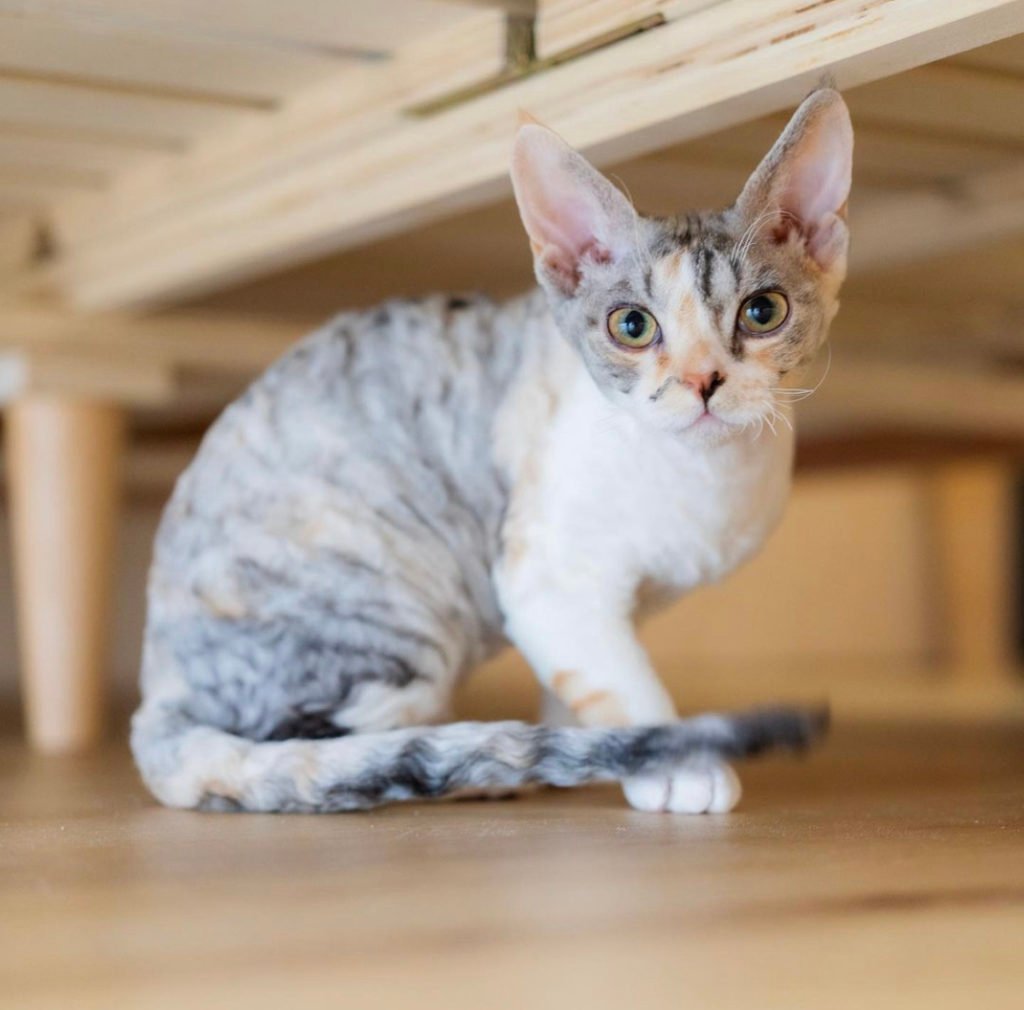
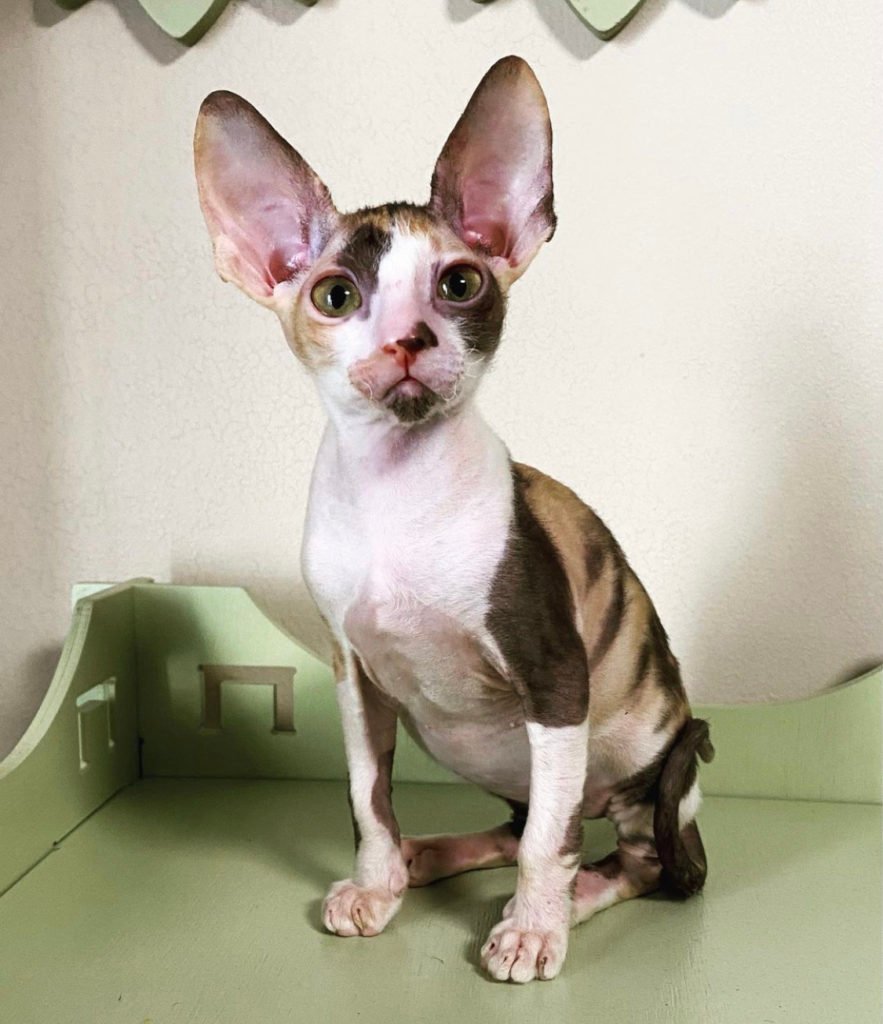
You May Also Interest: Himalayan Ragdoll Cat: Discover This Beautiful Mix
Devon Rex vs Cornish Rex: Choosing the Right Breed for You
Lifestyle Considerations
Activity Levels and Exercise Needs
The Devon Rex is an energetic and curious breed that thrives with plenty of playtimes and mental stimulation. Interactive toys and puzzle feeders can help keep them entertained. In contrast, the Cornish Rex is playful. Still, his more laid-back nature makes it a better fit for a relaxed home environment where occasional playtime and cuddles are appreciated.
Space Requirements
Both breeds adapt well to various living spaces, including apartments. However, providing vertical space like cat trees, shelves, or window perches is essential to satisfy their climbing instincts and offer an enriched environment.
Compatibility with Children and Other Pets
The Devon Rex and Cornish Rex are generally good with children and other pets. The Devon Rex’s energetic nature may make it a better fit for families with older kids or those that can handle its lively temperament. The Cornish Rex is more adaptable to homes with younger children due to its gentle and relaxed demeanor.
Devon Rex vs Cornish Rex: Grooming and Maintenance
Devon Rex Grooming Requirements
The Devon Rex requires minimal grooming because of its short coat. Weekly brushing helps remove loose hair, distribute natural oils, and maintain coat health. Additionally, regular ear cleaning and nail trimming are necessary for overall hygiene.
Cornish Rex Grooming Requirements
Similar to the Devon Rex, the Cornish Rex requires minimal grooming. Weekly brush should suffice to maintain coat health and appearance. Ear cleaning and nail trimming are also crucial for this breed.
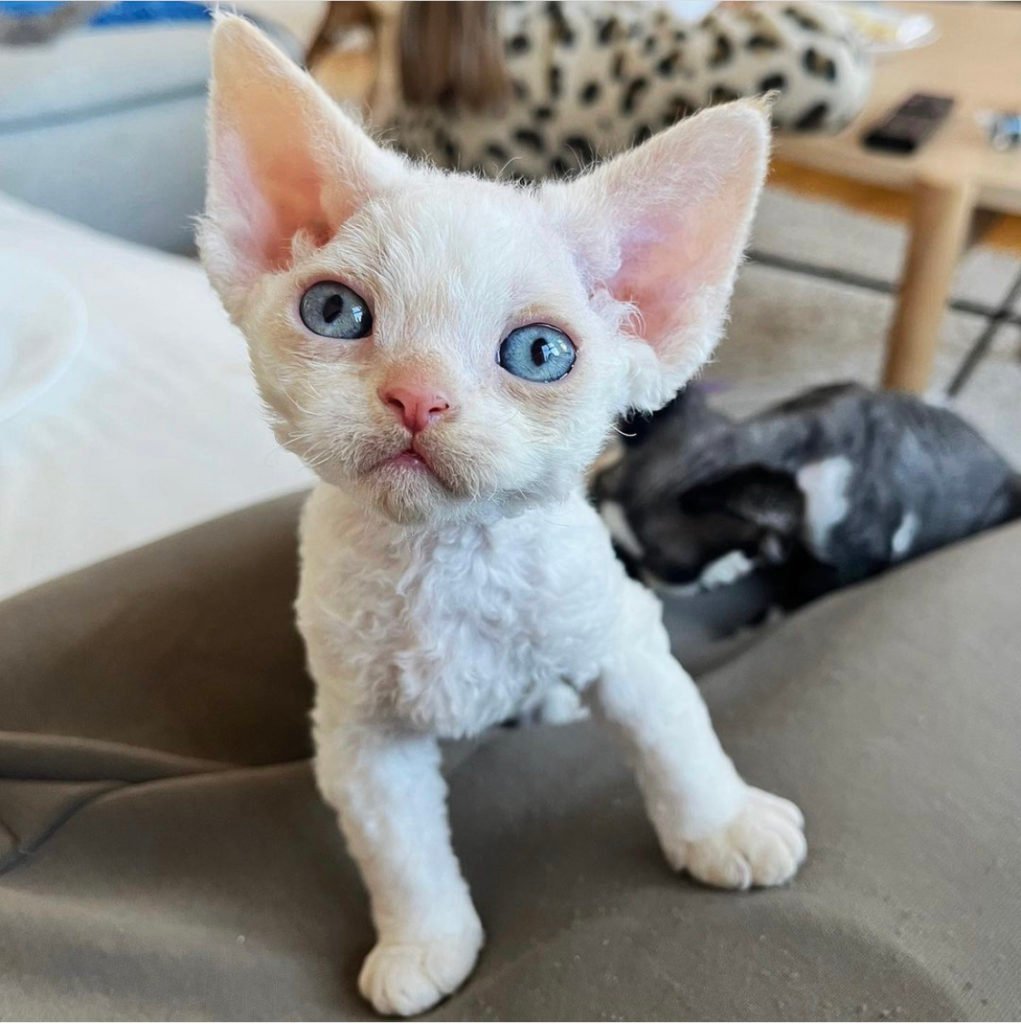
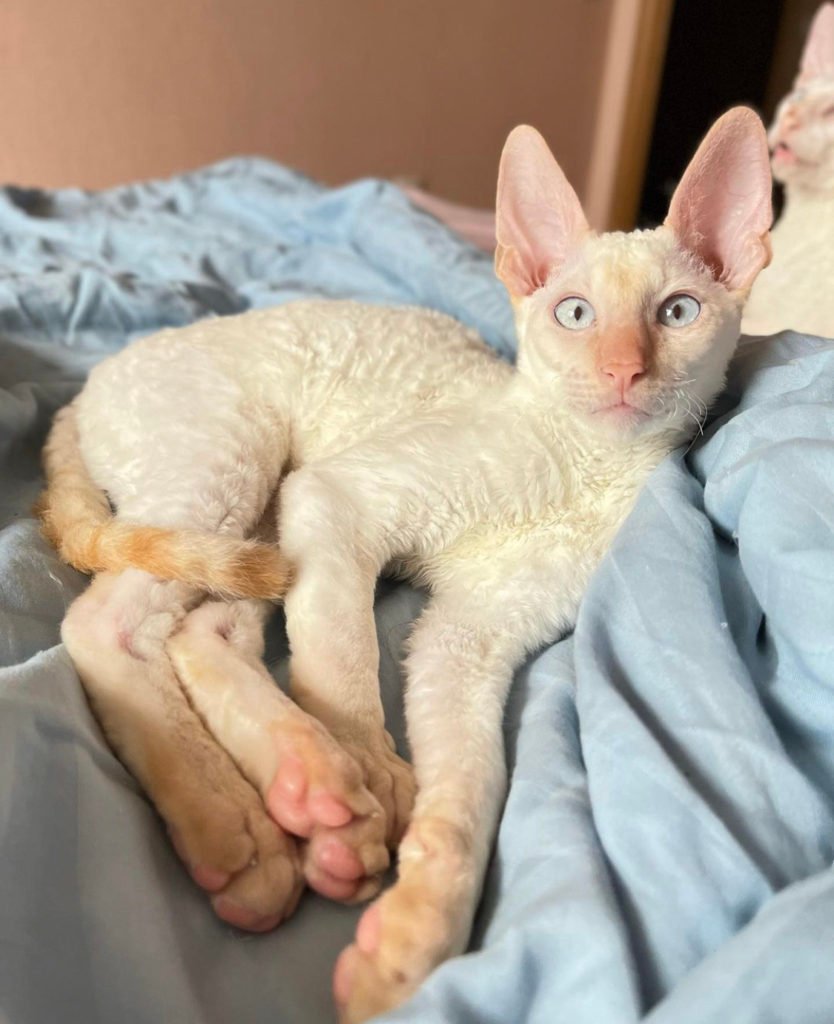
You May Also Interest: Norwegian Forest Cat Mix: A Feline Wonderland Awaits You
Devon Rex vs Cornish Rex: Health and Potential Breed-Specific Issues
Devon Rex Health Concerns
The Devon Rex may be prone to hypertrophic cardiomyopathy, a heart condition, and hereditary myopathy, which affects muscle function. Regular vet check-ups, vaccinations, and a healthy lifestyle, including a balanced diet and exercise, are essential for this breed.
Cornish Rex Health Concerns
The Cornish Rex can be susceptible to patellar luxation (dislocated kneecaps) and umbilical hernia. Routine veterinary care, including vaccinations, dental check-ups, and a balanced diet, help maintain overall health and well-being.
Devon Rex vs Cornish Rex:Temperament and Personality Fit
Devon Rex Personality Traits
The Devon Rex is known for its playful, curious, and energetic nature. This breed is a great companion for active households and those seeking a more interactive and engaging pet who enjoys being the center of attention.
Cornish Rex Personality Traits
The Cornish Rex is affectionate, gentle, and pleasant, making it a perfect fit for families or individuals looking for a cuddly companion who still enjoys playtime but is more relaxed and adaptable overall. This breed is excellent for those who want a loving, easy-going feline friend.

